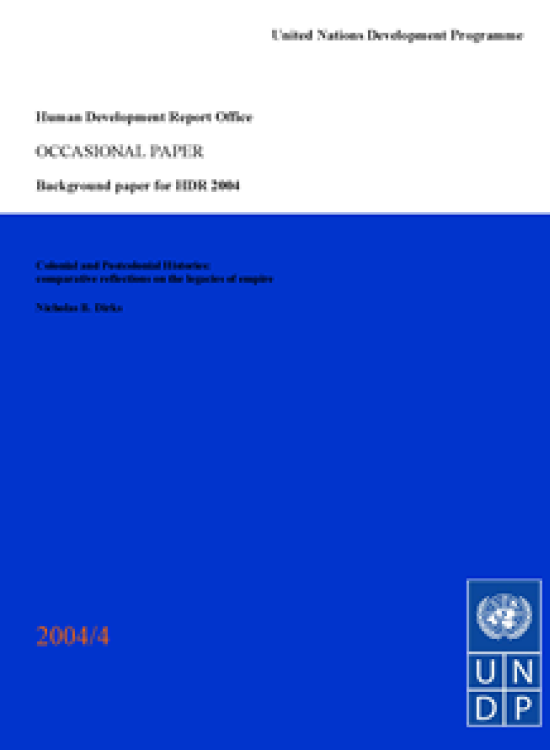Colonial and Postcolonial Histories
Comparative reflections on the legacies of empire

Download Report by Language
Document
hdr2004nicholasdirks.pdf
(318.22 KB)
Citation
Dirks, Nicholas B.. 2004. Colonial and Postcolonial Histories: Comparative reflections on the legacies of empire. New York.
Colonial and Postcolonial Histories
Comparative reflections on the legacies of empire
Posted on: January 01, 2004
Now, well after the first flushes of excitement in the immediate aftermath of decolonization -- when it seemed possible that movements of national liberation might overthrow colonial regimes along with their pervasive legacies -- it is generally accepted that colonialism did not die so quick a death after all. Instead, it has become increasingly clear that colonialism lived (and lives) on in many forms and ways. Most obviously, colonial rule had political and economic effects that have been captured, at least in part, by the terms “neo-colonialism” and “neo-imperialism.” The political instability of many new nations was clearly the result of a multitude of infrastructural problems, ranging from the enormous chasms separating colonial elites from the populace to the myriad divisions that had often been carefully engineered by colonial regimes precisely to retard the political development of nationalism. Similarly, economic underdevelopment was widely seen as the result of limited colonial investment and the continuation of marked disparities in access both to capital and markets between the formerly colonized and their colonizers. But even in the most scathing of early critiques, the depth of the disparities, and the continued commitment of new (and old) “colonial” institutions to political and economic dominance on a global scale, was hardly anticipated. And, perhaps as significantly, the extent to which the impact of colonialism was social and cultural as well as political and economic obscured both the prospective durability of colonial forms of dominance and the many ways in which colonialism lived on in the categories and procedures of knowledge itself.